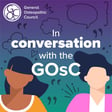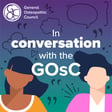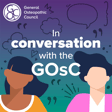
Working with neurodivergent patients and colleagues
In the latest episode of our podcast In Conversation with the GOsC, our Head of Policy and Education, Steven Bettles speaks with osteopath Rosi Sexton about working with neurodivergent patients and colleagues within osteopathy. Rosi talks about her own journey into osteopathy and her autism and ADHD diagnosis, and how this has impacted and influenced her work with patients, including some of the small adjustments or accommodations practitioners can make when working with neurodivergent patients.
You can find out more about Rosi and Olton Health on their website as well as on their Instagram at @oltonhealthperformance. Rosi is also working on making musculoskeletal healthcare more accessible to neurodivergent people and helping MSK professionals to better understand the needs of neurodivergent people, and you can follow the journey at @neuroflect on Instagram.


